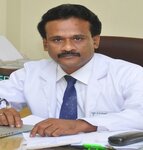Forensic odontology in India, an oral pathologist′s perspective
DOI:
https://doi.org/10.4103/0975-1475.85291Keywords:
Forensic odontology, knowledge, oral pathologists, surveyAbstract
Objectives: Oral pathologists have major responsibilities in the development of forensic science. We conducted a survey to evaluate the degree of involvement of oral pathologists in forensic investigations in India and the difficulties faced by them. Materials and Methods: Data was collected during 2007-2009 by means of a questionnaire survey among qualified oral pathologists related to confidence in handling forensic cases, knowledge and awareness, training in forensic odontology, practical exposure to forensic cases, and difficulties faced. Results: A total of 120 oral pathologists responded to the questionnaire. Of these, 28% expressed confidence in handling forensic cases, 7% had been exposed to formal training in forensic odontology, and 6% had handled forensic cases earlier. Only two participants said that they were part of the forensic team in their respective cities. Forty-eight percent of the participants said that they read forensic journals regularly. Conclusion: Oral pathologists are generally not very confident about handling forensic cases mainly because of inadequate formal training in the field of forensic dentistry, inadequate exposure to the subject, minimal importance given to the subject in the undergraduate and postgraduate curriculum, and no practical exposure to forensic cases.Downloads
Metrics
References
Quarino L, Brettell TA. Current issues in forensic science higher education.Anal Bioanal Chem 2009;394:1987-93.
Iacopino AM. The influence of "new science" on dental education: Currentconcepts, trends, and models for the future. J Dent Educ 2007;71:450-62.
Phillips VM. The role of forensic dentistry in South Africa. Med Law 1993;12:487-91.
Almirall JR, Furton KG. Trends in Forensic science education: Expansion and increased accountability. Anal Bio anal Chem 2003;376:1156-9.
Herschaft EE, Rasmussen RH.The teaching of forensic dentistry: A status report. J Dent Educ 1978;42:532-6.
Johanson G, Drinnan AJ, Keiser-Nielsen S. Education in forensic odontology. Int Dent J 1981;31:6-13.
Acharya AB. A decade of forensic odontology in India. J Forensic Dent Sci 2010;2:1.
Katz JO, Cottone JA. The present direction of research in forensic odontology. J Forensic Sci 1990;33:1319-27.
Darling MR, Daley TD. Oral Pathology in the dental curriculum: A guide on What toTeach. Dent Educ. 2006;70:355-60.
Rajendaran R, Sivapathsundram B. Shafer's text book of oral pathology. 5th ed. Delhi: Elsevier publication; 2005.
Brouder GT, Brock AM. Forensics as a teaching/learning strategy in graduate nursing education. J Nurs Educ 1984;23:159-60.
Downloads
Published
How to Cite
Issue
Section
License
Copyright (c) 2011 Journal of Forensic Dental Sciences

This work is licensed under a Creative Commons Attribution 4.0 International License.
CC-BY allows for unrestricted reuse of content, subject only to the requirement that the source work is appropriately attributed.













